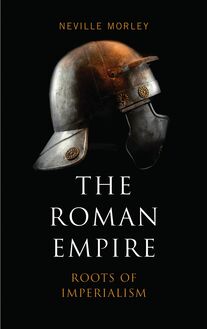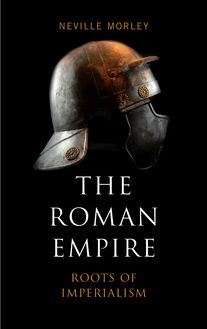The Roman Empire , livre ebook
177
pages
English
Ebooks
2010
Obtenez un accès à la bibliothèque pour le consulter en ligne En savoir plus
Découvre YouScribe en t'inscrivant gratuitement
Découvre YouScribe en t'inscrivant gratuitement
177
pages
English
Ebooks
2010
Obtenez un accès à la bibliothèque pour le consulter en ligne En savoir plus
Publié par
Date de parution
04 juin 2010
Nombre de lectures
1
EAN13
9781849645478
Langue
English
Poids de l'ouvrage
1 Mo
The idea of Rome has long outlived the physical empire that gave it form, and now holds sway over vastly more people and a far greater geographical area than the Romans ever ruled. It continues to shape our understanding of the nature of imperialism and influence the workings of the world. It is through the lens of Rome that we answer questions such as: How do empires grow? How are empires ruled? Do empires exploit their subjects or civilise them? Rejecting the simplistic narrative of military triumph followed by decline and fall, the books analyses the origins of Roman imperialism, its wide-ranging impact on the regions it conquered, and its continuing influence in debates about modern imperialism.
Acknowledgements
Introduction: ‘Empire Without End’
1. ‘Carthage Must Be Destroyed’: The Dynamics of Roman Imperialism
2. ‘They Make a Desert and Call It Peace’: The Nature of Roman Rule
3. ‘The Emporium of the World’: The Economic Impact of Empire
4. ‘They Called it “Civilisation”’: The Dynamics of Cultural Change
Envoi: ‘Decline and Fall’
Further Reading
Index
Publié par
Date de parution
04 juin 2010
Nombre de lectures
1
EAN13
9781849645478
Langue
English
Poids de l'ouvrage
1 Mo

